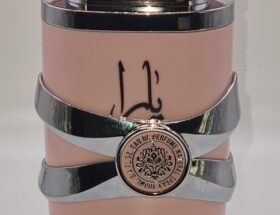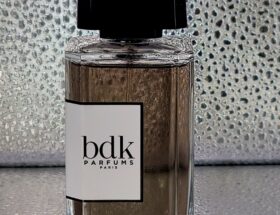I Feel As Worn Out As A Perfume Tester!

The art of making perfume is often described as a science.
Fragrance companies like Firmenich and Givadaun know it well.
The perfumers Quentin Bisch and Calice Becker know it all too well.
A primary aim of science is objectivity. An attempt to uncover the truth about the world, eliminating personal bias, emotion and false beliefs. While making a perfume requires some objective elements (chemicals, weight, etc.), the perfumer has absolutely no control over how their creation will be perceived by the public.
Smell is the sense that has the strongest ties to memory. A fragrance may evoke feelings of joy in one individual and elicit feelings of horror in another. The reactions that people may have to a particular fragrance can be as varied as the memories that live within us. Smelling a fragrance is an unequivocally subjective experience.
And yet, when I watch fragrance reviews online and on social media, I’d be forgiven for thinking that this isn’t the case. People who dare to dislike a popular fragrance are told that they have no taste. Commentary on perfume databases state that the inability to smell a specific note in a fragrance must be a character flaw. Reviewers proclaim that the value of a fragrance can be directly measured by the number of compliments you receive when you wear it. In this universe, a dupe can never smell as good as a designer perfume, and a designer perfume can never smell as good as a niche perfume, and a niche perfume can may smell as good as that first-release vintage perfume from 1998, but only if you buy the right batch code of course!
It is now no longer as simple as whether you like a fragrance or not. A fragrance can now be described as “challenging” to wear. Say goodbye to your own personal tastes MISTers and MISTresses, it is now your duty to force yourself to wear a scent you dislike for the sake of olfactory “science”.
How did such a subjective experience become perceived as an objective one within the fragrance community?
The psychologist in me suspects that it has something to do with people wanting to feel kinship with others. If I smell litchi and you smell lychee, we might feel like twins. If you smell almond and I smell cherry, we might feel like family. But if I smell vetiver and you smell tuberose? Well, we might as well be strangers. Seeking agreement from others about our own personal opinions may also reflect a need for us to feel understood by others. People who share opinions that are similar to our own can help to reaffirm the validity of our human experiences.
When I read the notes listed within a fragrance I view them as a spectrum. A suggestion of what might be experienced by an individual, rather than a dictation of what they must experience. Each fragrance I smell brings forth a specific memory and tells a particular story that can only be recanted by me. Each spray that hits my nose is a piece of subjective poetry, a scent soliloquy if you will.
So, I am starting this blog as my own personal rebellion against the current state of affairs. It will be filled with the world’s most subjective fragrance reviews. I won’t be listing every top, heart and base note as the databases already have that covered. I will use subjective storytelling to show you the journey that each fragrance takes me on and each memory it summons. Every review will see me further dig my heels into my own scent bubble and defend my right to olfactory authenticity. I hope that this blog encourages you to do the same!






Leave a Reply